
To attend this press conference, journalists are kindly asked to send an email with their name and their professional contact details to press@oiv.int.
Date: Wednesday 28 May 2015
Time: 11am
Location: International Organisation of Vine and Wine, (OIV), 18 Rue d'Aguesseau, Paris 75008 - Metro station Madeleine or Concorde
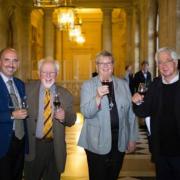
The 2015 edition awarded Trophies to the 14 best films selected from among 130 competing films from 16 countries. The 2015 awards confirm the international character of the Festival and go to productions from Australia, America, Belgium, Spain, France, Georgia, Mexico and Switzerland.
Consult the complete 2015 list of award winners for the best films on vines and wine
Consult the 2015 award for Terroirs d’Images
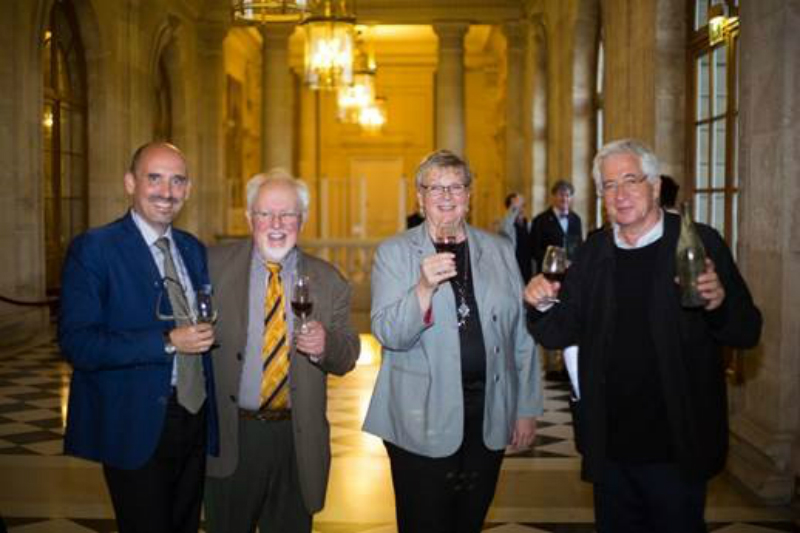
Yann Juban, Assistant to the Director General of the OIV, Henri Laurent Arnould, Director of the Revue des Oenologues, Monika Christmann, President of the OIV and Jacques Fansten, scriptwriter and Chairman of the Oenovidéo 2015 Grand Jury.
Photo: Samir Bahri
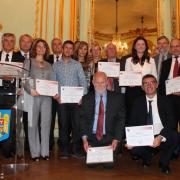
From 55 competing works and 17 countries represented, the OIV Award Jury, which met on 8 July in Mainz in Germany, under the Presidency of Ms Claudia Quini, gave out 9 Awards and 10 Special Mentions from the OIV.
Hosted by Mr Oleg Ungureanu, Chargé d'Affaires a.i. of the Romanian Embassy, the Awards Presentation Ceremony took place in the suites of the Hôtel de Béhague. It was attended by numerous representatives from the Diplomatic Corps; President of the OIV Award Jury, diplomat, poet and writer Mr František Lipka; OIV President Ms Monika Christmann; OIV Vice-President Ms Claudia Quini; OIV Director General Mr Jean-Marie Aurand and Scientific Secretary of the Award Jury Mr Jean-Luc Berger.
The 2015 Ceremony received the highest number of applications on record since the OIV Awards were created, confirming the renown and prestige of this international recognition.
The rigorous work of many specialised readers who evaluated all of these works gave the International Jury the necessary information to make their decisions, faced with the significant number of works submitted.
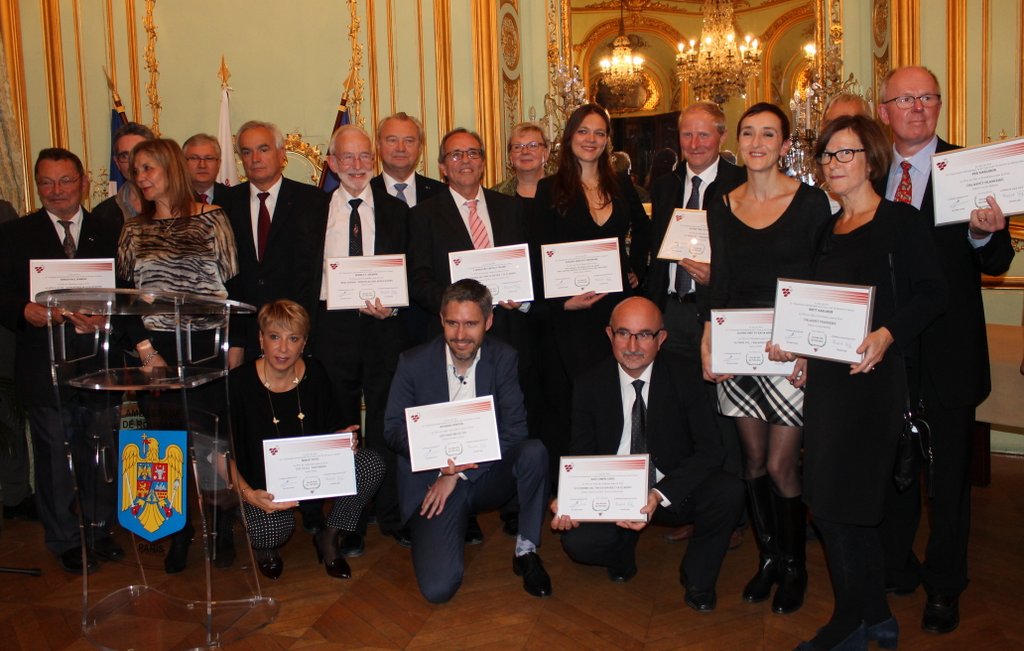
The authors and publishers were wholeheartedly thanked for their cultural, technical and scientific – or even hedonistic – contributions, each and every one of whose diverse approaches seeks to share a common passion for the vine and wine world.
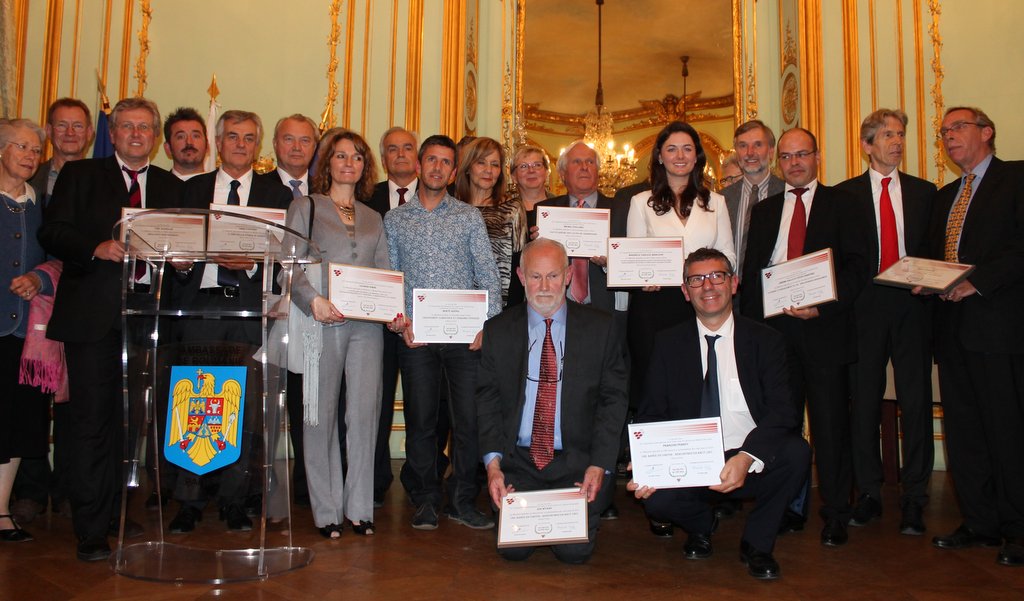
2015 Awards
Prize: Jury award
Category: Viticulture
« La vigne vol. 1 maladies fongiques »
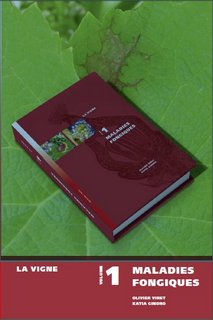
Olivier Viret and Katia Gindro
Switzerland
AMTRA editions
Category: Oenology
« Le bois & le vin - Les mystères de leur mariage »

Roger-Paul Dubrion
France
GFA Editions France Agricole
Category: Literature
« Σαν κρασι - san krasi »

Maria Tzitzi
Greece
Anubis Editions
Category: Wine and Health
« The Physician, the Drinker, and the Drunk - Wine’s Uses and Abuses in Late Medieval Natural Philosophy »
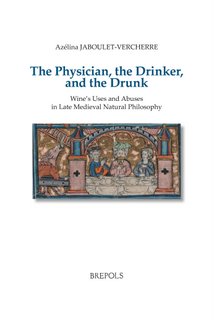
Azelina Jaboulet-Vercherre
Belgium
Brepols Publishers Editions
Category: Discovery and presentation of wines
« Vins de feu »
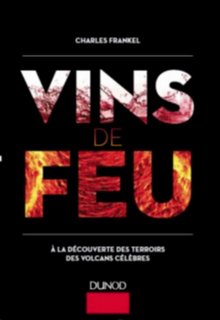
Charles Frankel
France
Dunod Editions
Category: Wines and Terroir
« Vinlandet Frankrike »
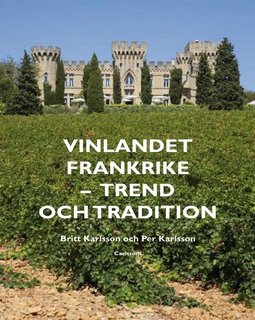
Britt Karlsson textes und Per Karlsson photographies
Sweden
Carlssons Bokförlag Editions
Category: Specialised studies
« Les parfums du vin »
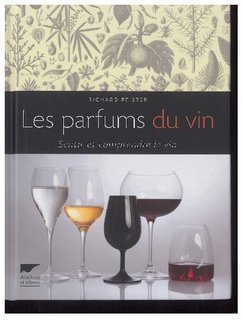
Richard Pfister
Switzerland
Delachaux and Niestlé Editions
Category: Acts of Symposia
« La economía del vino en españa y en el mundo »
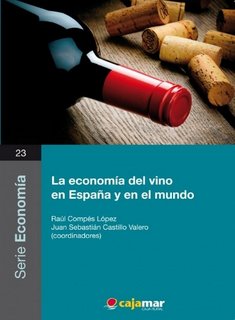
Raoul Compés López and J. Sebastián Castillo Valero
Spain
Cajamar Caja Rural, servicio de publicaciones Editions
Category: Encyclopedias
« Wine Science - Principles and Applications »
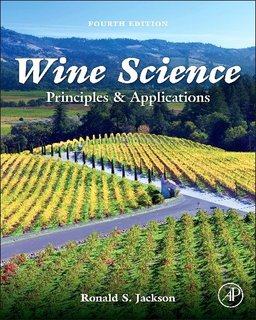
Ronald S. Jackson
United States of America
Elsevier Editions
Award: Special Mention
Category: Viticulture
« Biologischer Weinbau »
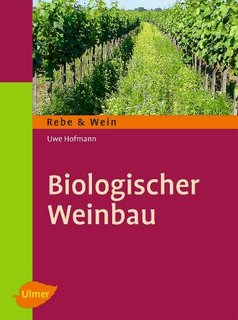
Uwe Hofmann
Germany
Ulmer Editions
« Changement climatique et terroirs viticoles »
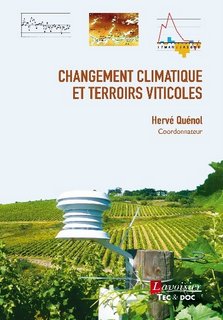
Coordinator Hervé Quénol
France
Lavoisier Editions
Category: Oenology
« Le SO2 en œnologie »

Jacques Blouin
France
Dunod Editions
Category: Vitivinicultural Economy
« Economie et management du vin - Wine Business Management »

Jérôme Gallo und Steve Charters
France
Pearson France Editions
Category: History and Fine Arts
« La Revolución Vitivinícola en Mendoza, 1885-1910. Las transformaciones en el territorio, la arquitectura y el paisaje »
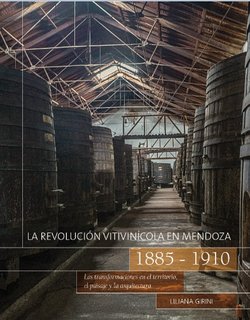
Liliana Girini
Argentina
Universidad de Mendoza Editions
« Il vino nella storia di Venezia »

Carlo Favero, Coordinateur du collectif
Italy
Biblos Editions
Category: Discovery and Presentation of Wines
« Une année en CORTON - Rencontres en haut lieu »
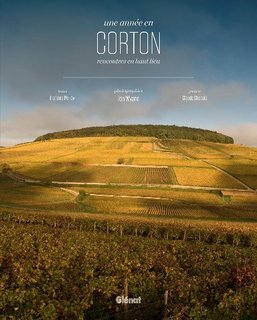
Jon Wyand photography, François Perroy texts
France
Glénat Editions
Category: Wine and Food
« 50 Vini di Romania incontrano 50 piatti italiani d’eccellenza - Vinuri românesti întâlnesc 50 preparate culinare italiene »
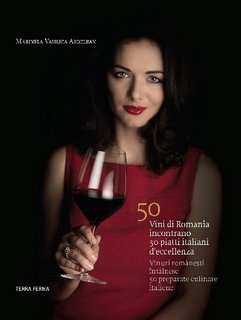
Marinela Vasilica Ardelean
Italy
Terra Ferma Editions
Category: Monograpies
« Bordeaux et ses Vins – 19e édition »
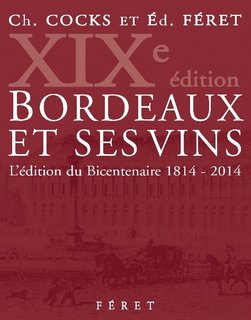
Authors represented by Bruno Boidron
France
Féret Editions
Category: Encyclopedias
« Encyclopédie des Caves de Champagne »

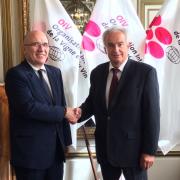
A country with a long-standing viticultural tradition, this Balkan State has successfully managed the privatisation of the sector, which has enabled new operators to offer quality wines that express its specific characteristics.
Jean-Marie Aurand was delighted to host this first wine presentation and expressed the desire to strengthen cooperation with the country through greater involvement of their experts and professionals.
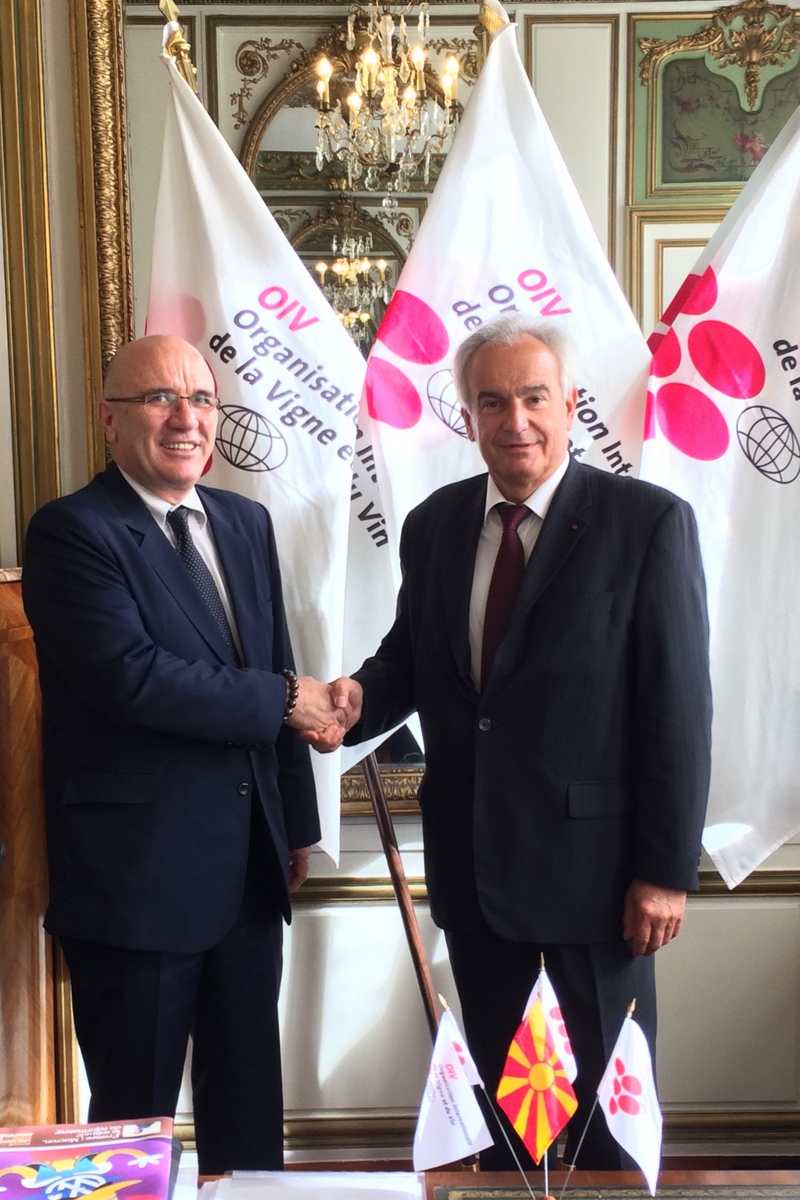
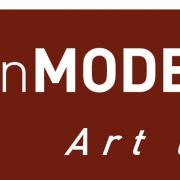
Wine in Moderation – Art de Vivre (WIM) is a non-profit association founded in 2011 by the European vitivinicultural sector to coordinate the implementation and development – both on a European level and internationally – of the WIM Programme, with the vision of securing responsible and moderate wine consumption patterns as social and cultural norms by spreading the WIM message in Europe and beyond. It has since been extended to Argentina and Chile.
This status will enable representatives from WIM to participate in the working sessions of the OIV commissions, sub-commissions and expert groups, as well as to attend the General Assembly.
